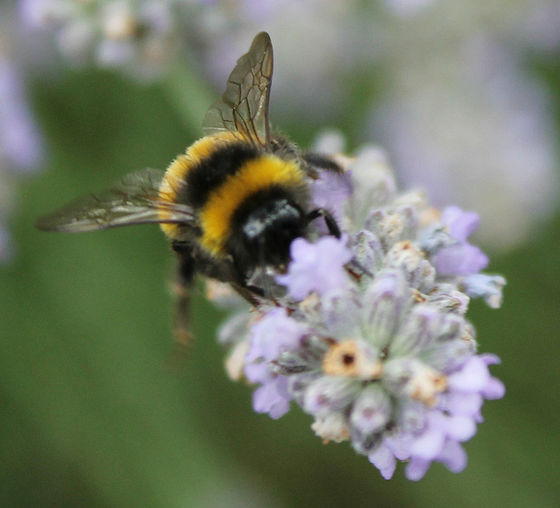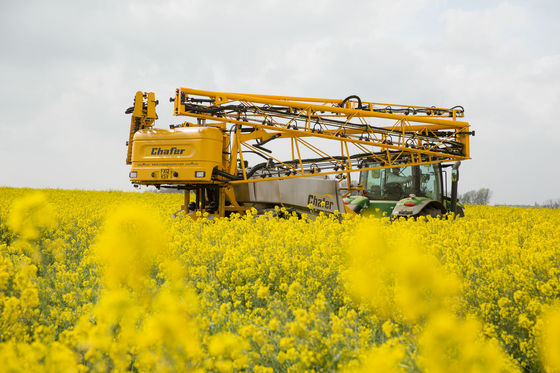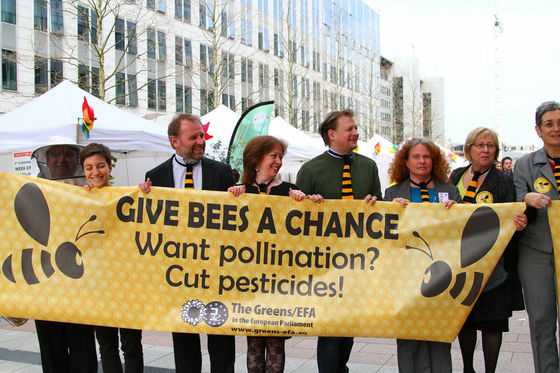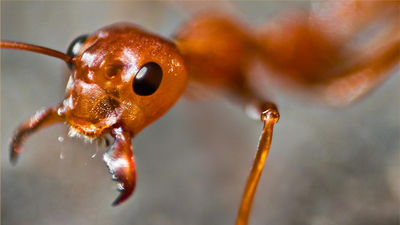Agricultural chemicals are related to "decrease in bee population" that is viewed as a problem all over the world

ByScuzzpuck
A research team that has analyzed bees over a long period of 18 years or more has found that half of the causes of the decline in the number of wild bees is decreasing year by year is widely used worldwide as pesticidesNeo NicotinoidIt is announced that it is in a system insecticide ".
Neonic pesticide link to long-term wild bee decline - BBC News
http://www.bbc.com/news/science-environment-37089385

In recent years, several research results have been published that "neonicotinoid insecticide has an adverse effect on bees and bumblebee." These research results range from field experiments and experiments in laboratories, but none of them examined long-term effects. Under such circumstances, the results of the follow - up survey of the ecology of 62 kinds of wild bees living in England over a long period of 18 years from 1994 to 2011 were newly announced.
This study was conducted in the UKCenter for Ecology & Hydrology(CEH) researchers are investigating using distribution data of wild bees. The research team compares and analyzes "distribution and population of bees" for 18 years with the growth pattern of oilseed rape, a bee's food. In 1994, the first year of the investigation period, the area of rape was only 500,000 hectares, but in 2011 it has increased to 700,000 hectares. The explosion of this area is believed to be caused by the commercial licensing of neonicotinoid insecticides for crops in 2002 in the UK.
Neonicotinoid insecticides in the UK have become widely used, so that seeds of many crops will be covered with pesticides. This pesticide is toxic to insects, and of course also harmful for bees. And now, in the UK, neonicotinoid insecticides are used in 85% of oilseed rape cultivation to control pests.

ByMatthew Smith
Dr. Nick Isaac, coauthor of the paper, said, "The negative effects that have been reported so far will expand over time." During the survey period, it has been revealed that 34 species out of the bees investigated due to neonicotinoid insecticide reduce the number of individuals by 10%. In addition, the five bees have reduced the number of individuals by 20% or more, and in the most affected type, the number of individuals has decreased by 30%. About half the surveyed bees, about half said that they are reducing their population in relation to neonicotinoid insecticides. However, the research team says, "Although the research presented this time led to the finding of the relationship between the neonicotinoid insecticide and the decrease in the population of bees, its cause and effect have not yet been clarified There are many ".
Pesticide manufacturers say that this research is "an interesting study" while insisting that a single insecticide is not responsible for the decline in the population of wild bees. "Neonicotinoid insecticides are used in most Brassica grown in the UK during the study period of this study, but aggregate agriculture should also have a major influence on the bee population. It is not clear whether the cause of the decrease is due to the use of insecticides or not, it is possible that serious factors in bee population reduction may be hidden in other parts such as nest deficiency and pollen, Company'sBayer"Said Dr. Julian Little, who works at the company.

ByChafer Machinery
However, some researchers believe that the results of this research are long-lasting and unprecedented and most reliable survey results. Professor Henric M. Smith of Lund University of Sweden said, "This is an excellent research result showing for the first time that widely used neonicotinoid insecticides influence bee populations for the first time." It is.
Dr. Ben Woodcock at CEH says, "If you grow rape, you can not grow without insecticide, so if" If you do not use neonicotinoid pesticide anymore, please do not use it " Even if it is told, there is a good possibility that something different insecticide will only be used, that new insecticide will flow into the waterways and affect something other creatures and ecosystems, We need an overall outlook, and as long as we are in a posture saying "you can fall into hell if you want to protect the bees", real solutions will not come up. "

ByGreensefa
Related Posts:







